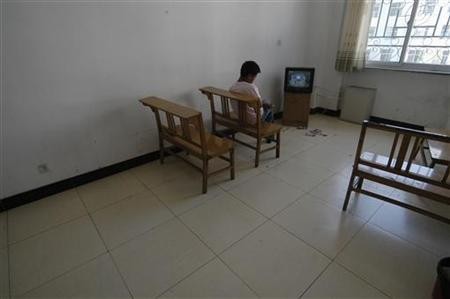As China's government commences the sittings of its two most important political, decision-making meetings, the third sessions of the 12th National People's Congress (NPC) and the National Committee of the 12th Chinese People's Political Consultative Conference (CPPCC), the neglected health and wellbeing of the children of migrant workers has been proposed for discussion.
The proposal came from Wang Jiguang, the deputy minister of the China Democratic National Construction Association (CDNCA) Chongqing Municipal Committee, who spoke on behalf of children who are left without the care of their parents because the latter leave their homes to seek higher wages in metropolitan areas.
According to Wang, the mental health of China's rural left-behind children has become increasingly fraught, with alienation cited as a primary underpinning factor of the year-on-year rising juvenile crime rate.
In order to adequately address the problem, Wang's proposal consists of four action items. Firstly, the deputy minister believes that parents need to be more communicative with not just their children, but also the guardians and the schools the children attend. Furthermore, parents need to better understand the effort that is required to provide their children with sufficient support in the context of a long-distance relationship.
Turning his attention toward the schools, Wang called for the establishment of a mental health records system to monitor the mental health and academic situations of the children. Such a system would allow for the provision of timely reports to both the parents and teaching staff, while the latter would undertake mental health professional development courses.
Also, the well-being of rural left-behind children needs to be considered more broadly through the improvement of governmental service systems, whereby both online and offline activities are the responsibility of all types of organizations and societal layers.
Finally, Wang wants to see public entertainment places managed more effectively, including the enhancement of rural public security. As well as preventative measures, the deputy minister believes that illegal and criminal behavior must not be tolerated and enforcement needs to be tightened accordingly.
Wang's document formed part of the response to the procedural call to China's ministerial representatives to submit legislative proposals for discussion at the CPPCC meeting.



























